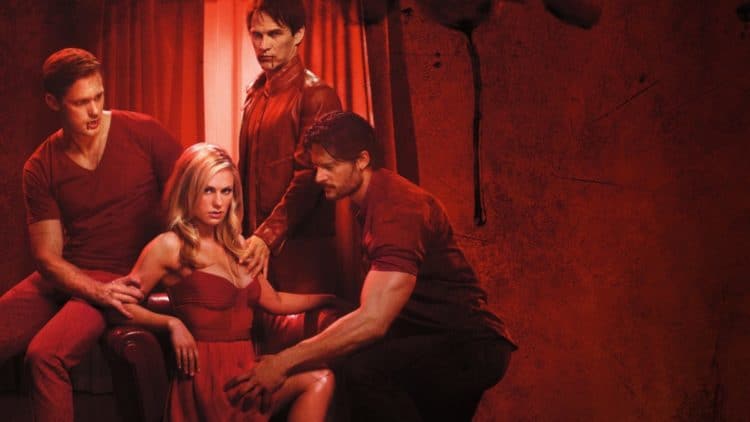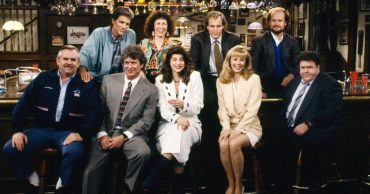
It makes sense that what viewers see first of a particular TV series should represent the best it has to offer, since it’s important to hook fans right away and ensure that they return for subsequent episodes. In some cases, it takes time for a show to find its rhythm, and that point may be reached once new stars are added or an initial plotline has been wrapped. In rare instances, shows remain consistently good throughout their runs, maintaining their quality over many seasons. And then there are some that start out great and then are unable to match it after it, with season one standing out so much compared to whatever comes next. Here are ten series with incomparably good first seasons.
24
When this show first premiered, it was one of the most innovative and thrilling series on the air. The concept of a drama playing out in real time over the course of twenty-four hours made the action all the more engaging, and it even went through multiple villains and storylines as the sun rose and then set again. The show won awards and was obviously renewed, and it was tough to top the day Jack Bauer had. Efforts were still made, but nothing was ever the same. The intimate family nature of season one’s focus gave way to far too many moles, preposterous killing methods, and Jack going a full nine seasons barely eating or drinking anything at all. The final season, subtitled Live Another Day, lasted only twelve hours, indicating that even Fox was ready to be done with this concept by then.
Desperate Housewives
When this primetime soap opera debuted, it featured fantastic characters played by even better actresses, with Teri Hatcher, Marcia Cross, Felicity Huffman, and Eva Longoria all considered leads and sometimes hogging all but one spot on awards lists in the Best Actress category. Their antics were often absurd but it was so fun to watch. Something changed, however, in season two, with the addition of new characters and some dark drama, and though the show occasionally found its stride over the course of eight seasons, it was never quite as clever and watchable as in its inaugural season.
Fargo
Adapting a classic Coen Brothers movie was not an easy task, but everything about the first season of the FX series worked. Its top-notch cast, led by Billy Bob Thornton, Martin Freeman, Allison Tolman, and Colin Hanks, was matched by excellent technical elements and excellent writing. The fact that it became an anthology series meant that nothing ever it could live up to that impossibly high bar. Though more talented actors, like Ted Danson, Kirsten Dunst, Jean Smart, Ewan McGregor, Mary Elizabeth Winstead, Chris Rock, Jason Schwartzman, and Jessie Buckley, were on tap, what came next just paled in comparison to the greatness of season one.
Jessica Jones
It’s hard to find a show quite as dark and disturbing as this one that manages to still be watchable. Krysten Ritter was born to play a private investigator who was also a former superhero suffering from PTSD, and the show got off to a brutal start with its haunting first episode finish. The real secret weapon was the actor who proved more than capable of matching Ritter onscreen: David Tennant, whose Kilgrave was a terrifying villain with nearly unstoppable powers and a penchant for making others suffer. Seasons two and three may still be better than most TV, but they couldn’t hold a candle to the captivating season one.
The Leftovers
This show about a society recovering from the sudden disappearance of a small percentage of its population was absolutely riveting and seriously depressing, drawing immense power from the sentiments of those who, for whatever reason, were left behind. The emotional intensity of season one matched with stunning performances from Justin Theroux, Carrie Coon, Ann Dowd, and the rest of the cast made for an unforgettable experience. Seasons two and three were still interesting but lost some of the magic that made season one so remarkable.
Legion
The opening of this X-Men-adjacent drama was simply mesmerizing, breaking down the way its protagonist, David, began to adjust to the powers he never knew he had that made him question if he was ever actually schizophrenic. The introductions of the supporting characters were just as fascinating, and this show didn’t skip a beat throughout its entire first season. But as it got into season two and then season three, it shifted its focus towards the more bizarre, leaning into its unique nature but losing some of what made it impossible to ignore.
Mr. Robot
There are few television pilots that surprise as much as this one, which came from USA, a network not exactly known for its original dramas. But Rami Malek’s hacker who wanted to take down an evil corporation was quite endearing, and season one played out with many twists that, even if they could be predicted, demonstrated a rich quality of writing and character development. Seasons two through four still had value, but they didn’t possess the same vivid originality and veered away from what initially made this show so worthwhile.
Narcos
Based on the true story of Pablo Escobar, this show was the definitive crime drama, explaining the ins-and-out of the Columbian drug trade and the investigation that slowly brought him down. It didn’t seem like season one was ever in a rush, which gave it endless time to tell its story, but it was just as ready to follow an unexpected development and quickly change the pace. Season two might have felt less urgent and spectacular because Pablo’s circumstances were different, and while season three was a solid recovery, this show could never be the same without its Pablo, Wagner Moura. There’s a reason that season four became Narcos: Mexico – there just wasn’t much left to tell about this particular story.
The Newsroom
Aaron Sorkin fans tend to be on board for whatever he does, and after a post-West Wing hiatus and a one-season disappointment in Studio 60 on the Sunset Strip, there was reason to anticipate this show. Season one was a stunning ensemble drama that richly explored the world of television news, and it unsurprisingly earned a pickup for season two, which was hindered by a forced arc that would have been better had it been based on reality. Season three was good, but it didn’t feel right to end this show’s run with only six episodes. It would have been much satisfying – and potentially as good as season one – given a bit more time to explore its storylines.
True Blood
It’s hard to find another show quite like this graphic, peculiar Southern Gothic drama from Alan Ball. The idea of vampires being accepted into society has never felt so serious and legitimate as in this show, which also incorporated a lot of twisted humor in its vampire-human interactions. Season one came to a terrific close with a big reveal and a superb finale. The show would go on to continue for six more seasons, with some good, some bad, and some truly strange (like the vampires getting high from drinking blood), and nothing was ever quite as mesmerizingly intoxicating as season one. We’ll see if the upcoming reboot recaptures the glory.
 Follow Us
Follow Us





